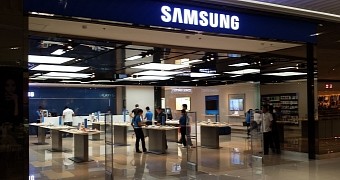It seems that the Volkswagen scandal starts to ripple to the entire consumer electronics industry and even beyond, showing the dirty underbelly of the modern industrial manufacturing practices and how nobody used to give a damn about energy efficiency and environmental laws.
In a string of bans, penalties and product recalls that are crippling world industrial giants one by one, an unlikely candidate for energy efficiency forgery, Samsung, has joined the fray after the European Commission has found that its products appear to use less energy during official testing conditions than they do during real world use, raising concerns of tests being set up to meet European ecological standards.
The European Commission says that it will investigate all allegations of cheating and has pledged to impose tighter energy efficient regulations in order to outlaw devices or software that could defeat the tests in every consumer products, or devices.
Denying allegations, Samsung considers defeat device a TV feature
Obviously, fearing the same fallout that came after the Volkswagen cataclysm, Samsung quickly denied allegations that its TVs’ "motion lighting" feature is designed to fool official energy efficiency tests or that it may constitute a defeat device.
To make it more credible, the company says that "motion lighting" is, in fact, a feature that reduces screen brightness in regard to fast-moving action movies and sports to slow-moving footage like weather reports. Samsung concludes that the tests didn't find a cheating software, but a feature, which might be curious for the less credulous of us.
According to The Guardian, the tests were carried by a EU-funded research group called ComplainTV that found the differences in energy consumption rates in real-world situations versus official test conditions. What ComplainTV has found is that Samsung's "motion lighting" feature is reducing the TV sets’ brightness and power consumption under the IEC test conditions.
The feature/defeat software activates when the testing team playbacks fast sequences of varied material like recorded TV shows or DVDs to live broadcasts. This sort of low energy consumption rates does not happen when used in household applications, illegally inflating the bills.
TVs usually eat about 10% of a consumer's typical electricity use in his home, so you can imagine that in reality energy use could be even higher.

 14 DAY TRIAL //
14 DAY TRIAL //